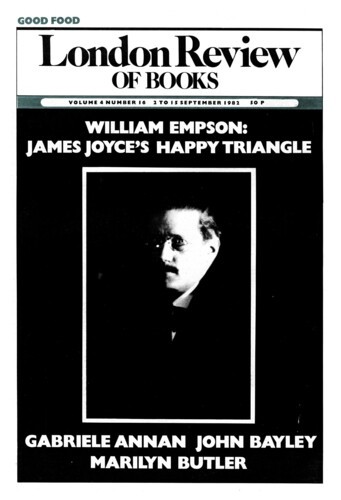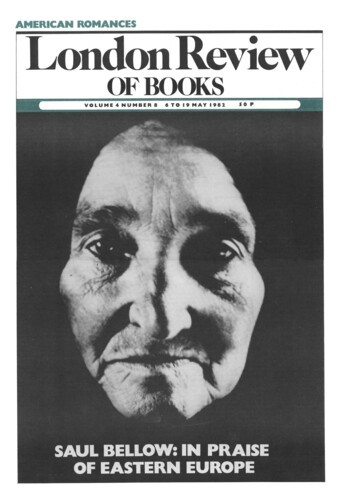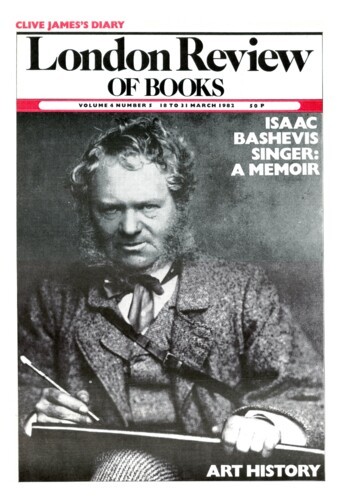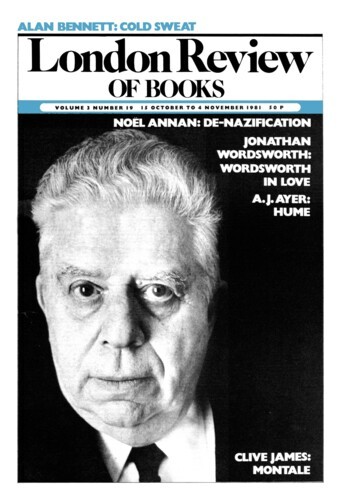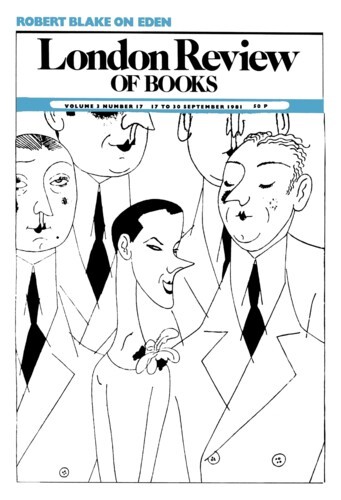Moments
Marilyn Butler, 2 September 1982
It is a current preoccupation on the Left, more fashionable now among many students of English than Post-Structuralism, that English Literature as an academic subject is a conspiracy of the Establishment. The message coming out of the polys is that the minds of students and (more disturbingly) of schoolchildren are being insidiously moulded by the classics they study at O and A Level. They are indoctrinated into a belief in national unity and identity, greatness and purpose, through the values elicited from the Prologue to the Canterbury Tales and Henry IV Part One, Keats’s Odes and Tom Jones, Emma and Tess. It is still happening, even after we have got historians to stop drilling them in the battles we won, and when geographers no longer offer them maps in which the Empire is coloured red. Penguin Books’ reissue of Boris Ford’s Pelican Guide to English Literature, which first appeared a quarter of a century ago as an alternative version to ‘authorised’ literary history, is a reminder that not much happens that is new in academic warfare.
